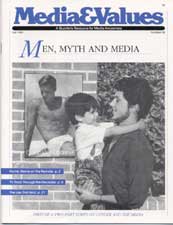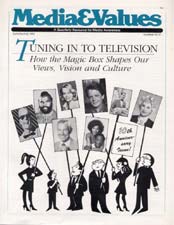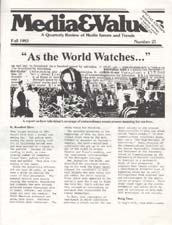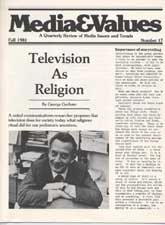God of Prime-Time Television, The
|
Article Images:
Citation: This article appeared originally on www.beliefnet.com, the leading multifaith website for religion, spirituality, inspiration & more. Used with permission. All rights reserved. |
Television has portrayed flying nuns, angels, bishops and rabbis and now God himself. What do they say about the divine?
What would you know about God if your only source of information were television?
It's a question worth asking this year, with no fewer than four new shows with theological implications. This week CBS takes its second shot at portraying God in three years with its heavily promoted "Joan of Arcadia," and next month Fox will introduce "Tru Calling" and "Wonderfalls." "Carnivale," on HBO, is the Almighty's cable debut.
From their founding to the late 1970s, America's TV networks channeled God almost exclusively through gray-haired, honey-toned men like Bishop Fulton J. Sheen, whose "Life Is Worth Living" beat Milton Berle's ratings in the 1950s, Norman Vincent Peale and his protege Robert Schuller. God was an optimist, a booster who'd fit in on the motivational speaking circuit. From the appearance of "Highway to Heaven" in 1984 until last season, when "Touched By An Angel" ended its seven-year run, God was an unseen helper acting through angels who took the form of Michael Landon and Della Reese.
Nowadays, God is on more shows than ever, speaking, not so much through, but to young women. The portrait they draw says as much about Hollywood as they do about the divine. But they make their points with a verve that the earlier treatments didn't, forcing the question of divine revelation, and asserting a theology unique to television.
Some of the theological themes found on "Joan" and other current television shows that touch on religion:
God is "one of us." The best of new God shows, "Joan of Arcadia," is nothing if not bold. While cool special effects have given us tasteful glimpses of the invisible realm, "Joan" faces us with a human likeness of God, exploring what theologians call the immanence of God--the divine expressed in the world, specifically in humans. God is a fellow teenager, a cafeteria hash slinger; Joan ends up peering expectantly at any stranger who looks at her funny.
But the supernatural is only one way God manifests himself. Joan also finds God's love in her father, who comforts her when she is frightened by her visions, and her physics-whiz brother, who helps her grasp the possibility of God from the rationalist side.
God is not who or what we expect. If God wants to appear as the lunch lady, that's God's prerogative. Shows that challenge rigid or fixed ideas about God perform the same service as Theology 101--questioning the limits we put on God, and allowing God to surprise us.
God is good. Religion is bad. Joan's mother asks a minister where God was when her son had the accident that left him paralyzed. The minister lamely suggests she make an appointment, and tells her, "I'll pray for you." This skepticism about institutional faith is common on the tube. On the WB's "Everwood," a rabbi responded to a girl's question about the existence of God with a string of convoluted metaphysical principles. Like Joan's mom, the girl did better learning about God on her own.
God as pursuer. God pops up on the bus, at school: the "hound of heaven" won't let Joan go. Often this principle is personified in a righteous person who stands by another, even in the face of rejection. A few seasons ago on "ER," a dying bishop pursued a close friendship with the angry lapsed Catholic, Dr. Luka Kovac. The relationship ended in spiritual healing for both men.
God expects us to use our talents. God wants Joan to "fulfill her nature." A nod to the human potential movement, yes, but also recognition that God has given us special gifts for a purpose. This being TV, the characters on Fox's upcoming "Tru Calling," and USA Channel's "The Dead Zone" both use their supernatural insight to help the police solve crimes.
God works through ordinary individuals. Movies, like the semi-Biblical epics like "Spartacus" or the more recent "Ghandi," stress the power of one to inspire the community and change the world. On the small screen, God is a strictly small-bore thinker. He mysteriously tells Joan to take a job in a bookstore, which inspires her disabled brother to stop feeling sorry for himself and get a job too. Perhaps one day TV writers will risk creating characters who reveal the prophetic and communal nature of God's will.
God is interfaith. "I come off a little friendlier in the New Testament and Qur'an [than in the Old Testament]," says God inclusively in the "Joan" premier. The show's creator, Barbara Hall, says the show won't side with any religion. This is only practical, since the show will succeed by appealing to all viewers. But it also reflects our culture's growing respect for all religions.
TV writers sometimes mistake mentioning religions for understanding them. What precisely does Joan's God mean to imply--that the Hebrew Bible misunderstood God's nature? Some Christians do see the New Testament as a "corrective" to the Hebrew Scriptures, but is this what Joan's God means to say?
God oversees a cosmic battle between good and evil. Shows with religious undertones often take a page from Manichaeism, a third-century Persian religion that emphasized the eternal fight between good and evil spirits. Salvation comes when the God's good spirits defeat the bad ones. Faced weekly with a pantheistic anarchy of demons, gods, goddesses, wood nymphs, faeries and "white-lighters," the witches of the WB's "Charmed" fight the good fight. Good usually reigns, although its hold on the world seems tenuous.
HBO's new show "Carnivale" promises more Manichaeism-lite: "In every generation is born a creature of light and a creature of darkness," its opening sequence intones. Several characters are candidates for both kinds of creatures: a preacher; a young man who has the power to heal and, in some cases resurrect (a dead kitten anyway); a carny who reads minds; and the comatose psychic who talks telepathically to her daughter. Which of these are agents of God? "Carnivale" doesn't answer. It wants us to decide. (Hint: It's a safe bet that the fist-shaking preacher isn't a creature of light.)
God intervenes. "Joan"'s Hall says her God will not directly intervene in the characters' lives, but it's hard not to point out that waltzing into the life of a girl in Anytown USA is already a rather obvious intervention. Most of us don't experience God with that sort of clarity. We muddle through: praying, considering feelings, carefully sifting through voices in the culture and community, and relying upon the tenets of our religious traditions.
God plays it safe. Theologian Paul Tillich contended that our "god" is that thing we care most about. Using that standard, the "god" of any network TV show is market share. If a God show does well, it's probably not seriously challenging the status quo.
Assuming God delivers eyeballs, however, we should be watching God on TV for a few seasons to come. The demands of good storytelling make it likely that writers and producers will eventually favor characters who sincerely and intelligently practice a specific religion. Some of the most successful episodes in recent seasons of "ER ," "The West Wing," "Everwood" and "Six Feet Under" have shown us characters with definite denominational attachments. Audiences seem to know instinctively what theologians in the interfaith movement discovered early on: generalizing about God is never as invigorating as sharing our deep and particular experiences.
Television can never be our preacher or guru--it has too many ulterior motives. It can, however, sensitively embrace the holy and invite us to examine and form our own theology. What greater compliment could be paid TV than to say, "That show made me think seriously about my faith"?
This article appeared originally on www.beliefnet.com, the leading multifaith website for religion, spirituality, inspiration & more. Used with permission. All rights reserved.







